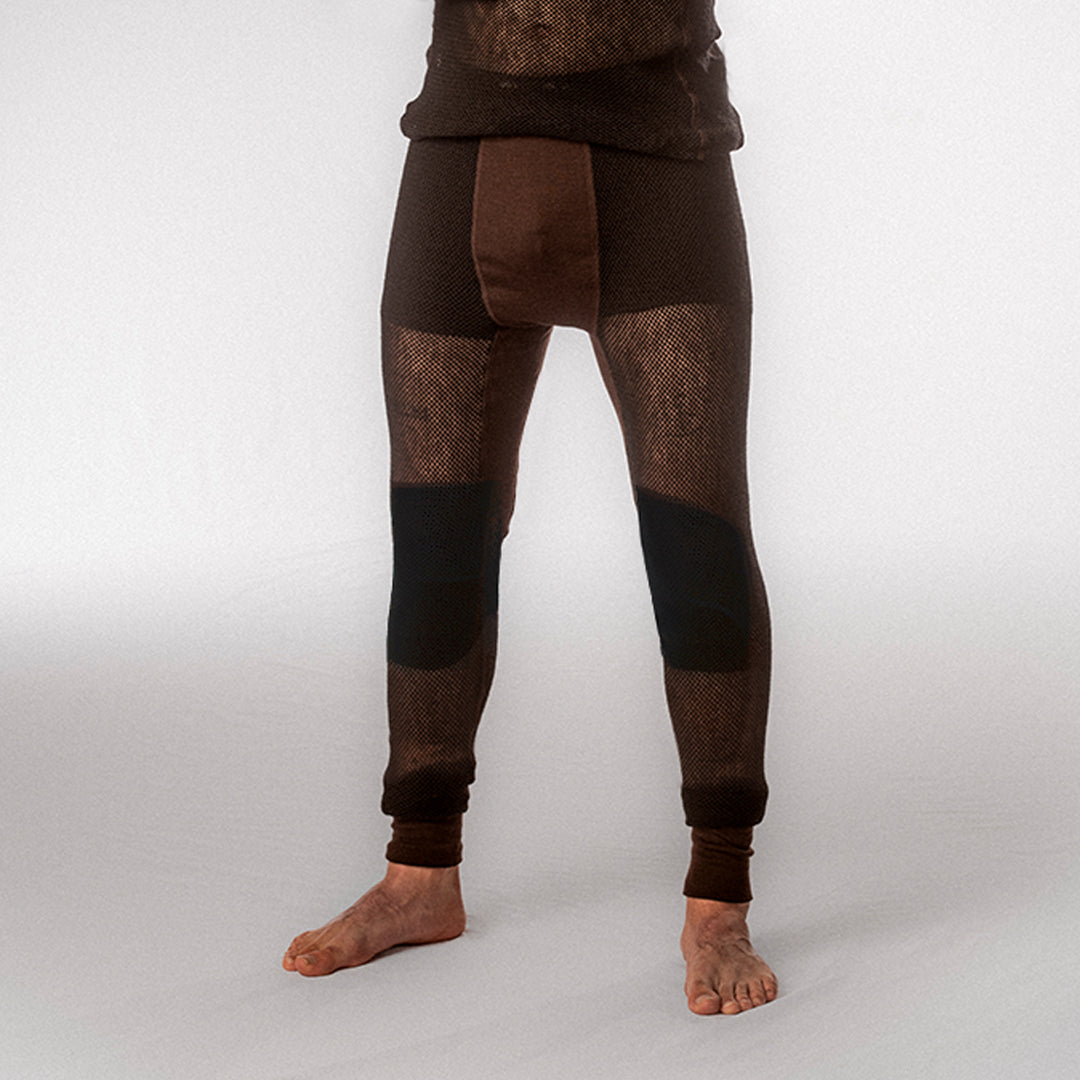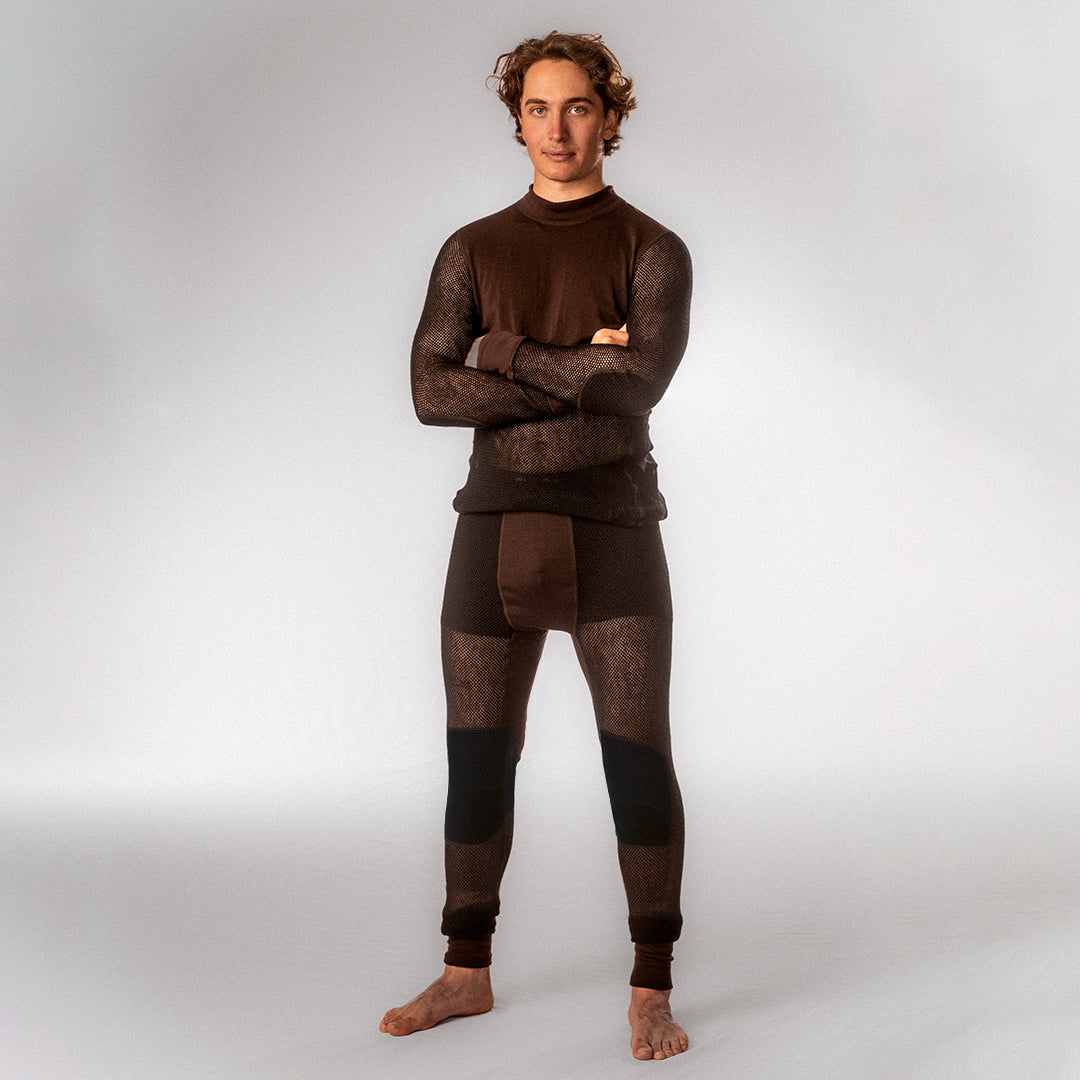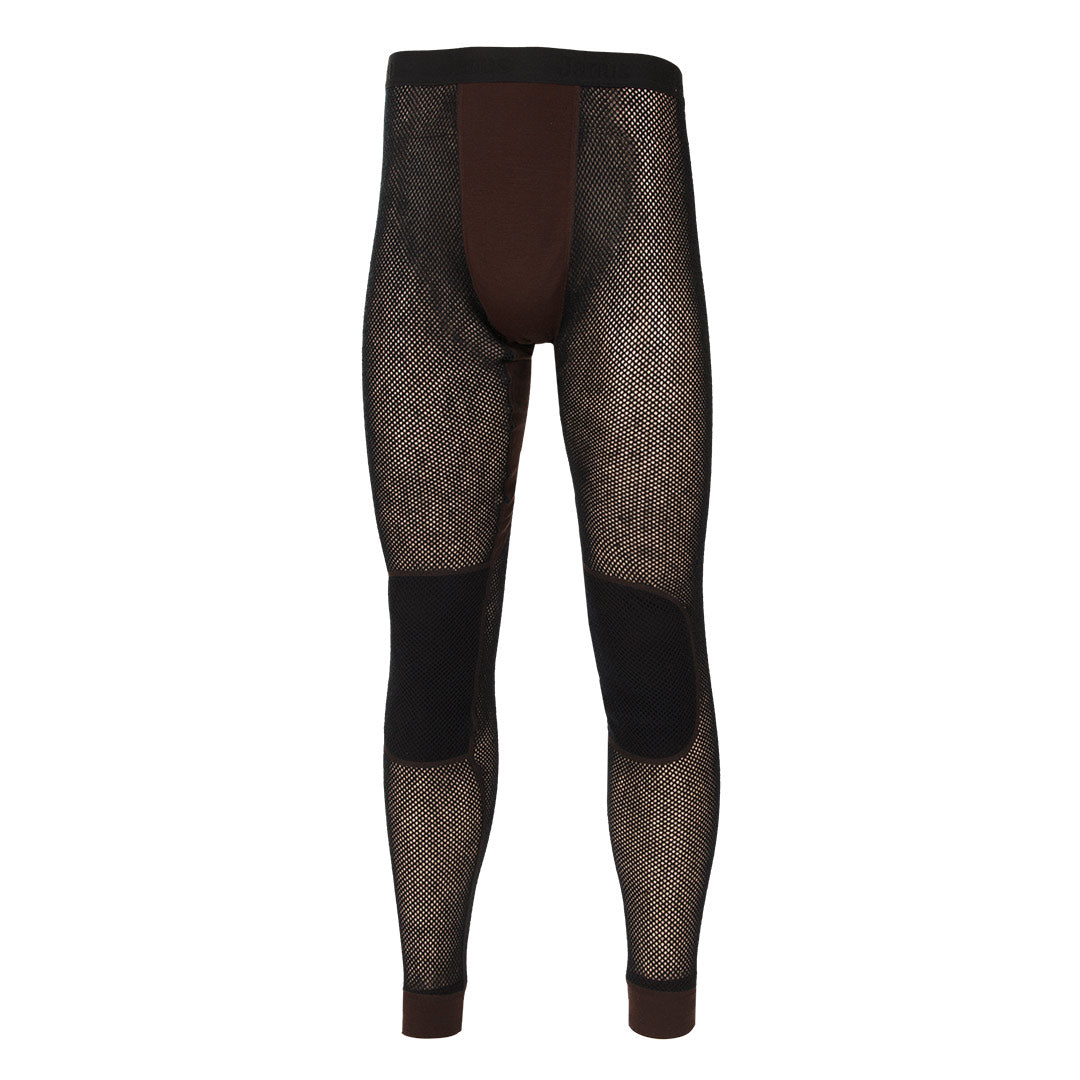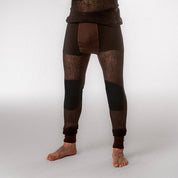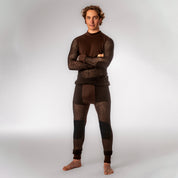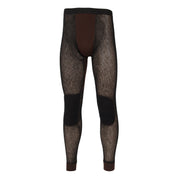Ullongs netting - Kleveland
Janus Marcus Kleveland longs in net / mesh in merino wool. Here you get extra protection in full merino wool in the crotch, on the back and on the knees. Netting provides excellent moisture transport, while the warm air in the netting holes provides super insulation.
No need to freeze, the longsen is perfect for long days on the slopes in cold weather. Use an extra wool layer when it's extra cold: See the Janus Marcus Kleveland zip polo and full suit.
Marcus himself has been involved in developing the collection.
Produkt nr: 4934101-940-XS
